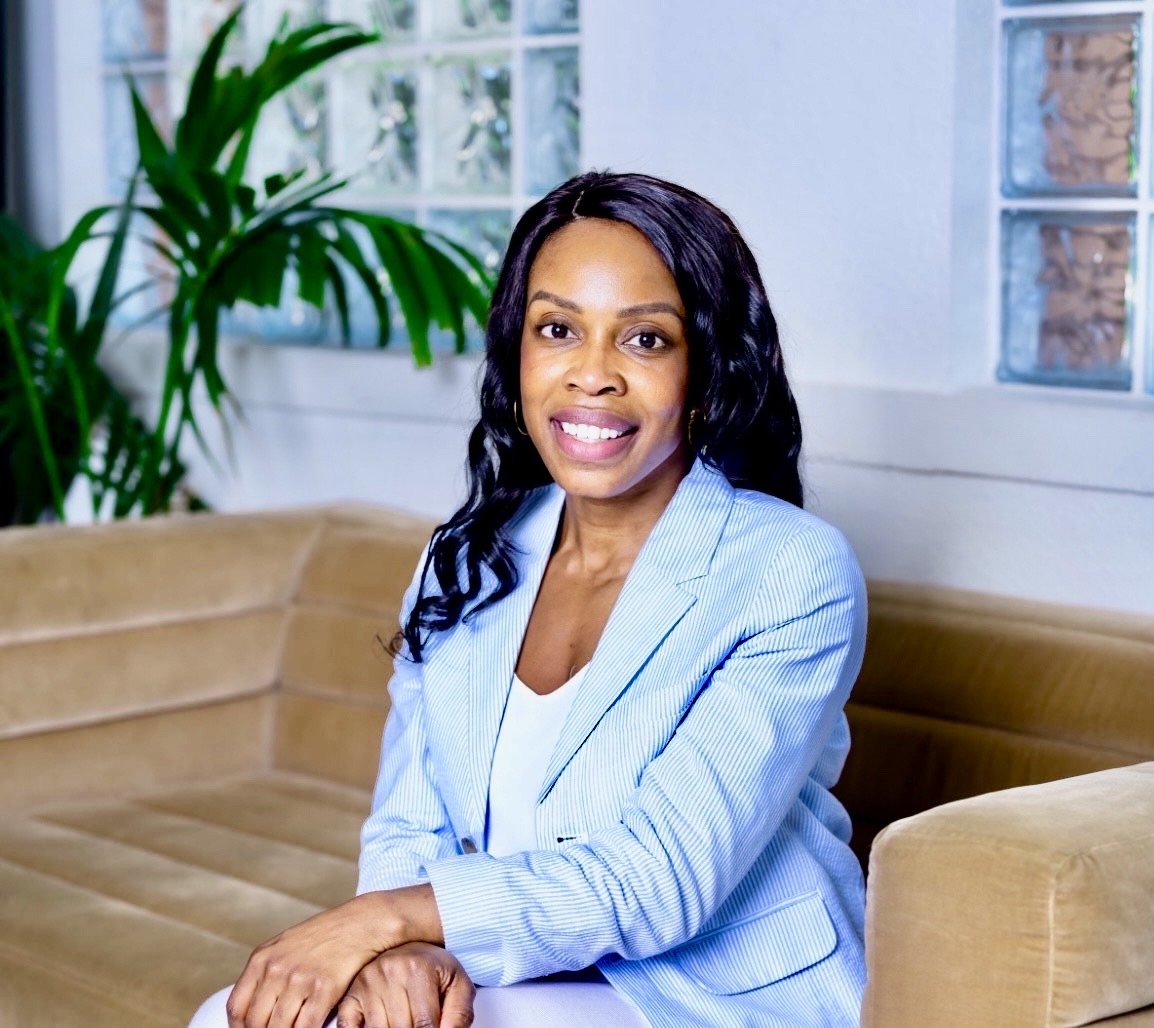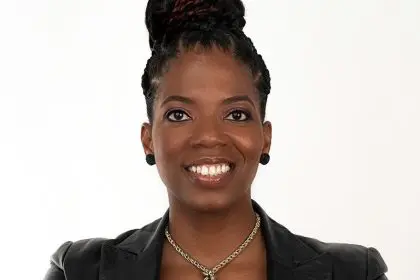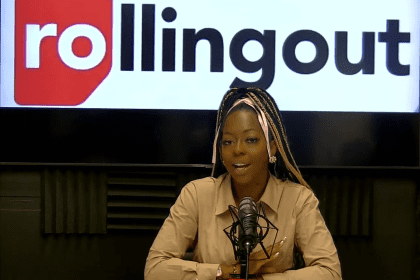Video interview with Nekpen Osuan Wilson coming soon. Check back shortly to watch this exclusive conversation.
Nekpen Osuan Wilson is a force for transformation in both the tech and finance industries. As a certified Executive Coach, tech investor and TEDx Speaker with more than 15 years of expertise in business development operations, Wilson has dedicated her career to addressing workplace inequities and empowering women leaders.
A former UN Global Ambassador for Sustainable Development Goal 5 and Co-Founder of the women’s empowerment nonprofit WomenWerk, Wilson leverages her passion for women’s empowerment to advise leaders on diversity, equity, inclusion and belonging. Her impressive career spans roles with The Muse, WIN Summit, and as an Advisor with 81Cents, where she applies her expertise in professional development, human capital strategy and strategies for improving workplace culture.
Here are all the questions and answers in the order they were asked from the interview transcript:
What moment made you realize that you wanted to lead in both tech and empowerment spaces?
I started my career in financial services. As you know, it is a space where there’s a certain type of professionalism. And in a world where we’re post DEI, we are post inclusion, I started realizing pretty quickly that in order for me to impact how we lead as women in spaces like finance and tech, we have to start doing the work to recognize the ways in which we allow for certain types of exclusion to continue.
Have you ever wondered why women have been mothers since the beginning of time? However, when we think about women entering the workforce, that’s a more recent evolution, compared to all of the history of mankind. Yet as women continue to rise in leadership and take on top C-suite roles when we continue to drive business conversations about what’s best for women at work seem to be peripheral conversation. So women are working, contributing just as much as men in the workforce, and this time women are earning more degrees than men. Actually, women are more likely to outpace men in the workforce in the future.
However, when you think about things that persist like income and earnings, inequity, things like limited leave for women who are primary caretakers, primary mothers in the home, we still haven’t seen the needle move as much. And so for me, I really wanted to unlock, as an executive coach, what are the mindsets and frameworks that persist in the workplace where women enter? They prove that they’re capable, yet policies and some of the outcomes like income, inequality, some of the policies for women are slower to move.
That’s a question that I’ve always grappled with in my career. And as an executive coach, what I do is I empower women to take on issues that are presenting challenges in their workplace versus saying, “How do I learn this game that’s not built for me so that I can move up?” I empower my clients to think about redesigning the game, particularly in finance and tech, where we are less the majority, but we’re doing just as well as the men.
How does WomenWerk influence your approach to leadership coaching and DEI advising?
I started WomenWerk about 13 years ago with one of my best friends. We both met at Columbia University. We both found ourselves gathering after class and after sessions to talk about what it meant to enter predominantly male spaces. She was an engineer, I was going into finance, and we knew from the beginning that as we were networking to find work, we’re looking through our professional networks, we found that the experiences and the opportunities were given were not the same, not to say we were experiencing any sort of direct discrimination, but we could see that the networking and the ease of entering into new role was just much more challenging for us.
So we decided to create our own space called WomenWerk. Where we talked about the challenges of women in the workforce. At the time I wasn’t a mom, but I knew very well that reentry for women is a challenge. So many women find themselves finding it hard to return to work after leave, even when they take time off to take care of a family. That breath of experience that is motherhood, is sort of discounted when you try to enter. So we started bringing in experts, particularly C-suite leaders, who were thinking through solving these issues in their companies. I’m no longer active in the organization, but in founding it I knew that the legacy would continue, and it does till today.
What parallels do you see between finance and tech industries when it comes to equity and opportunity?
I will say that all the organizations I’ve worked for have been pretty progressive in thinking about how to build equity in the workplace. However, some of the challenges that I see today that persist across industries, not just with specific companies, is again thinking about how we measure income quality.
Why do we not talk about reporting income to the EEOC? Why do we not talk about the government, which tracks everything else, from how much you’re paid, to how much you’re taxed, to how much your wages? We track so many things that are reported, but when it comes to reporting how much certain people earn, not in any personal, identifiable way, not in any way that reveals personal privacy issues, but in a systemic, strategic, scientific way, as we do everything else in our country. Why don’t we talk about that more often?
My former mentor, Charlotte Burrows, was the head of the EEOC for two presidents, and she always told me that every time she would get in a room with these executives who could solve everything else. They’re solving the climate issue, they’re solving how to improve investor relations, they’re solving how to improve their triple bottom line, when it came down to talking about equity and income, payroll, equity was not of interest, it was just not a priority.
And we understand the business case for it, but I’ll tell you that so many companies that are transparent about income equality, so many companies that are measuring who is promoted, when and how they’re being promoted. These are the companies that are among the fortune 50 companies of this country, because they are tracking information about income. They’re ensuring that nobody’s overpaid for the similar work that’s needed. And also, they’re investing in their leaders within, to grow, including female leaders. We know that women lead differently.
Catalyst recently published research that talks about how women are more patient in the deliberation. They’re more inclusive in the deliberation. They don’t often rush to make big decisions. In fact, they over integrate the idea within the company first, before making a unilateral decision. This is how women lead, and we know that’s better for companies. So why not promote more women, or at the least measure why there’s not equality at the top ranks of your company. So these are the types of questions that I wrestle with in my practice. But most importantly, I enable people to think about building influence, so that when they’re bringing up these conversations it doesn’t have to feel adversarial. It can be a value add to the business.
Why don’t companies talk more about income inequality?
There’s 3 main things that we found in our research at WomenWerk about this topic. One was this idea that bringing up gender made some people feel uncomfortable, for whatever reason.
In a world where I think some people want to be race neutral, race blind, gender neutral in their thoughts about things, talking about gender, it made some people feel uncomfortable, and when I say some people, I’m sure you can guess which people it made uncomfortable. So this idea of building influence and relationship is critical in the workplace before we can ask for change. And that’s what I really think is important about my coaching business is I’m always thinking about integrating women as influential leaders, as people who are part of the business, not an other, as women who are there to add value to that business.
So that’s one reason why people often don’t talk about it. The second reason is, many HR companies are actually trying to simplify the role of HR. Which is to say that when HR comes in to ask questions about certain things, many businesses see that as extra work, instead of a value add. Your HR company is probably more told to keep compliance, to keep tax reporting, to keep benefits clarity, and that’s it. When it comes to supporting managers, when it comes to giving feedback to managers, when it comes to thinking about how direct reports are included in the management process, that’s less so the role of HR nowadays. And this is why executive coaches, like I, exist because HR has been minimalized, and I think that many CHROs know that that’s not the best role of HR. But having it being simpler is easier for businesses, not necessarily the best in the long run, but it’s easier. And so that shifting role of the HR function is another reason why a lot of people, when they try to bring up these conversations, they have a hard time finding allies in the workplace, they have a hard time building that influence to get it done.
And then the third one is a concern that payroll will become a bigger part of the company’s budget. If we are finding that there’s inequality, then we have to correct some of these inequalities.
What is your core message that you hope audiences take away from your talks?
One of the things that I love to do when I’m speaking is to ask folks to turn inward. Sometimes when we are building a sense of professionalism, a sense of culture with a big C, we forget that that’s a little c, culture starts with you.
When you are a leader in a workplace, and you have not come to terms with your own biases. You’ve not come to terms with your own, maybe personal drive over coaching others who are reporting to you, that can come at attention. So I always ask leaders to have an inward conversation about their own leadership style. Yes, I can tell you what are some of best practices for companies and institutions, but at the end of the day, the most important relationship is a manager to direct report. So you, deciding as a manager that you’re going to be fair about how you pay people, it’s a personal decision first. You, as a manager, deciding that when women need time to care for families and the men are not asking for that, you know that that’s a bias in our world.
You’re not going to punish the women that work for you. When people ask for flex time, and you know it’s actually possible to have flex time, you’re not going to push back against this for fear of this idea of being present from 8 to 5, being the only way to work. We all have to take individual responsibility of how we show up at the workplace, and that’s what I always try to preach first when I speak, that I can give you the platitudes. But at the end of the day the way you rise as a manager. The way you shape your company is an inward journey. Reflect on your own biases, reflect on your goals for your company, and reflect on your own self awareness about how the workplace is inherently unequal for these reasons we just talked about, and once you come to terms with that you can show up better in the workplace.
What are you excited about for Road Map to Billions and what role does community play in growth?
Road Map to Billions is one of my favorite conferences. This is my third year speaking, and one of my favorite parts about this conference is that unlike most conferences that are very industry and niche specific, what Black Women Talk Tech has done is build an ecosystem for women.
So we’re going to hear from speakers who are executive leaders. We’re going to hear from people who themselves are first time employees in tech. They want to know how to navigate the space and how to survive. We’re going to hear from investors who are looking from a business lens to invest in younger companies. Take that risk. Help founders get to their dream. It’s a wonderful ecosystem. And because of that balance of different perspectives and role players in tech. I love this conference a lot.
How can we follow you and continue to learn from you?
I am available on Instagram @nekpenwerks. If you want to keep in touch with me, please add me on Linkedin. It’s my full name, Nekpen Osuan Wilson. I’m always sharing nuggets about trends I see in the workforce, what I think is ahead for the American employer, that’s one of my biggest passions, its really reading the tea leaves in the workplace so that folks can take more of an active role in shaping their career.
Also, if you have any career professional needs, please feel free to message me at [email protected]. That’s [email protected]. I love offering free 15 min consultations. It’s a personal space. It’s a confidential space. We can talk through whatever it is you’re experiencing at work so that we can strategize together. This is an absolutely free offering. And I do it because, one, I want to hear what people are really working through. It’s gonna be hard to share publicly some of the most challenging parts of our career experience. And so I like to offer a safe space for folks to talk through it, and also to offer advice of what I’ve seen work well in different environments.














